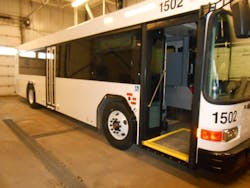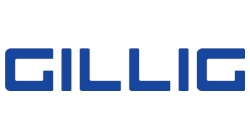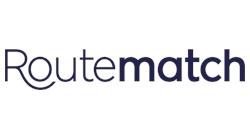Two new buses worth nearly $800,000 have been delivered to Capital Area Transit from California and will be pressed into duty potentially at the end of February or beginning of March.
This is the first time in three years CAT has received new buses, while demand on the service has continued to rise. The CAT fleet performed 138,610 one-way rides in 2014, resulting in 315,123 miles driven. About 50 percent of the existing fixed-route fleet is at, or beyond, its useful life. The useful life for each of the 30-foot buses that presently make up the fleet is 10 years or 350,000 miles, whichever comes first.
“The buses are workhorses,” said Robin Werre, transit director. “When you consider the strain put on them day after day with the in-town driving, they have a pretty demanding life. And when they get near the end of that life, they can become expensive to maintain. So these new buses are certainly a welcome addition.”
Each new bus measures 35 feet long and weighs in at about 15 tons before CAT hardware is installed. A bus will seat 31 passengers and hold nearly 40 riders altogether. Each bus will have two passenger doors, allowing passengers to disembark from the front or middle of the bus. The front door is equipped with a ramp for accessibility.
CAT Manager Nate Vatsndal traveled to California in January to meet with Gillig about Capital Area Transit’s needs and to see the beginning stages of the building process.
“It is a pretty amazing process,” said Vatsndal. “Gillig is pretty much the standard as far as these heavy duty buses go, and to see them put something together is incredible. We’re looking forward to getting our drivers behind the wheel, and the buses out on the road.”
It takes Gillig nine days to complete construction of a bus, however the lead time for ordering and receiving a bus is about 22 months.
Once the buses completed the drive from California to North Dakota, a representative from Gillig came to Capital Area Transit and inspected each bus. Then, each bus was fitted with electronics including a fare box and RouteMatch hardware and software. External advertising wraps that help give each bus its own personality are sold and then the bus is sent out to serve the community.




